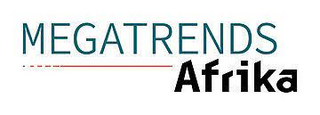
Leverage and limits: what African actors make of the new multipolarity
Hackenesch, Christine / Tobias Heidland / Denis M. Tull (eds.)External Publications (2025)
in: Megtrends Afrika Working Paper 21
DOI: https://doi.org/10.18449/2025MTA-WP21
Open Access
In recent years, the international relations of African countries have been increasingly analysed through the lens of multipolarity and the growing economic, political and strategic competition between external powers. This debate started to gain prominence around 2018–19, when The Economist identified a “new scramble for Africa”. It has since intensified in the context of the COVID-19 pandemic. Russia’s full-scale invasion of Ukraine finally
exposed the sharp divides as Russia, on one side, and Ukraine and its Western partners, on the other, sought to mobilise African governments in pursuit of international support for their respective positions within the UN.
The world’s political superpower – the US – has been in a process of relative disengagement from Africa for more than a decade now. By contrast, China, India, Turkey and, to a lesser extent, Brazil and Middle Eastern countries such as the United Arab Emirates, Saudi Arabia and Qatar have expanded their presence on the continent in the areas of trade,
investment, diplomatic support and security engagement. At the same time, Russia, a major player during the Cold War, has renewed its engagement, although, arguably, its activities remain more limited both in scope and in scale. The increasing presence in Africa of the BRICS – South Africa became a member in 2010, while Egypt and Ethiopia followed in 2024 –
is another manifestation of today’s shifting power relations and multipolarity. Similarly, the recent entry of the African Union (AU) into the G20 underscores the external recognition of Africa’s importance. Moreover, it demonstrates the continent’s growing ambition to shape international politics and defend its interests vis-à-vis the rest of the world. [... ]A common thread running through all the chapters in this volume is that in Africa, multi-polarity is not simply a tale of the decline of the West and the rise of competitors like China, Russia, the UAE and Turkey. Rather, there is a complex reconfiguration of power relations under way in which African governments, institutions and societies have their say in negotiating the terms of engagement with the rest of the world, despite the undeniable persistence of asymmetries in terms of material power.

